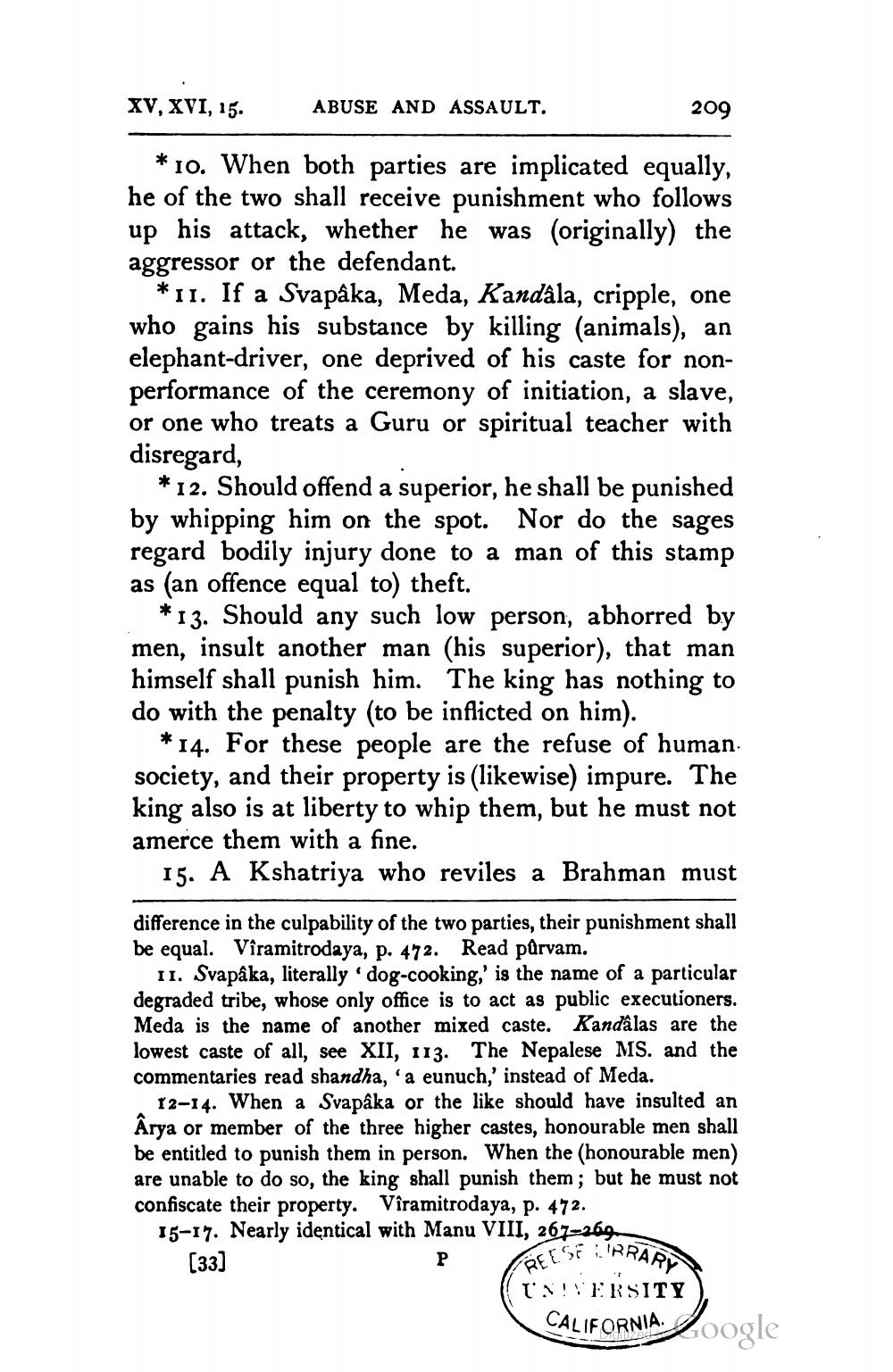________________
XV, XVI, 15.
ABUSE AND ASSAULT.
209
*10. When both parties are implicated equally, he of the two shall receive punishment who follows up his attack, whether he was originally) the aggressor or the defendant.
*11. If a Svapâka, Meda, Kandàla, cripple, one who gains his substance by killing (animals), an elephant-driver, one deprived of his caste for nonperformance of the ceremony of initiation, a slave, or one who treats a Guru or spiritual teacher with disregard,
*12. Should offend a superior, he shall be punished by whipping him on the spot. Nor do the sages regard bodily injury done to a man of this stamp as (an offence equal to) theft.
*13. Should any such low person, abhorred by men, insult another man (his superior), that man himself shall punish him. The king has nothing to do with the penalty (to be inflicted on him).
*14. For these people are the refuse of human society, and their property is (likewise) impure. The king also is at liberty to whip them, but he must not amerce them with a fine.
15. A Kshatriya who reviles a Brahman must
difference in the culpability of the two parties, their punishment shall be equal. Viramitrodaya, p. 472. Read pärvam.
II. Svapaka, literally 'dog-cooking,' is the name of a particular degraded tribe, whose only office is to act as public executioners. Meda is the name of another mixed caste. Kandalas are the lowest caste of all, see XII, 113. The Nepalese MS. and the commentaries read shandha, 'a eunuch,' instead of Meda.
12-14. When a Svapaka or the like should have insulted an Arya or member of the three higher castes, honourable men shall be entitled to punish them in person. When the (honourable men) are unable to do so, the king shall punish them; but he must not confiscate their property. Vîramitrodaya, p. 472. 15-17. Nearly identical with Manu VIII, 267-269 [33]
fácesc LIRRARA (MX!!ERSITY
CALIFORNIA:Joogle




